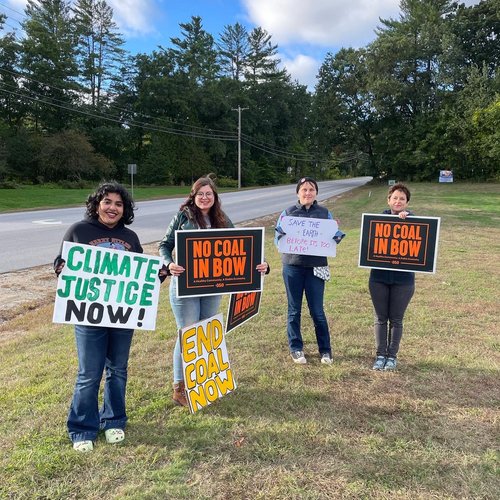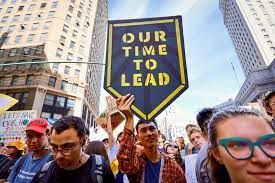350 New Hampshire Action (350 NH) works to stop the climate crisis by building grassroots support...
Climate Mobilization Project: Events To Launch Giving Circles
The Climate Mobilization (TCM) is building power for a national transformation that rapidly restores a safe climate and creates a just and democratic society. To further its mission, TCM uses a grant from Progressive Multiplier to engage giving circles and establish relationships with major donor networks through two new hybrid events.
Overview
TCM tested whether they could develop a sustainable independent revenue generation model through giving circles and other event-based fundraising approaches. Shortly after beginning their experiment, TCM underwent a significant organizational transition, reframing their mission to center racial justice in their environmental justice work. This strategic shift caused them to lose key supporters and board members, creating additional challenges for their fundraising efforts.
Rather than abandoning their revenue goals, they adapted their approach to match their new reality, testing multiple event models to identify the most effective strategy for their evolving donor base. By the end of the reporting period, TCM had raised $56,656 through their new fundraising initiatives, exceeding their 12-month revenue projection.
Key Strategies & Tactics
Virtual Giving Circle: TCM hosted a virtual giving circle with 11 attendees featuring speakers from partner organizations who shared powerful stories about their climate justice work. The event raised over $26,000 in gifts and pledges, which doubled through follow-up fundraising efforts and a matching gift.
House Parties: TCM pivoted to a house party model, identifying hosts and planning distributed events. These smaller, more intimate gatherings allowed TCM to make casual asks of potential donors in a comfortable setting, generating $3,106 in revenue.
Online Course: TCM developed an asynchronous online course offered on a sliding scale fee basis. The course served as both a list-building vehicle and a source of recurring revenue, securing 45 sign-ups and generating $60 per month in subscription revenue.
Follow-Up Systems: TCM leveraged their strong event registration, follow-up, and stewardship systems to maximize donor conversion. They used email and direct mail to conduct follow-up solicitations and learned the power of matching gifts.
Lessons Learned
Adapt to Organizational Changes
When TCM's donor base shifted due to their organizational transition, they quickly pivoted their fundraising strategy rather than abandoning their revenue goals.
Test Multiple Approaches
By testing various event models, TCM discovered that different formats work for different donor segments. Giving circles were effective for major donors, while house parties better suited their grassroots supporters.
Harness the Power of Matching Gifts
TCM learned that matching gifts can significantly amplify fundraising results. An $8,000 matching gift helped them generate nearly $24,000 in additional donations.
Leverage Existing Systems
TCM's strong systems for event registration, follow-up, and stewardship provided a solid foundation for their fundraising efforts.
Invest in Peer-to-Peer Fundraising
The organization identified a need for better peer-to-peer fundraising resources that address specific challenges their organizers face.
The Multiplier Effect .png?width=1920&height=600&name=ROI%20(12).png)
Impact
Through this experiment, TCM established multiple revenue streams that provide crucial unrestricted funding. This financial foundation enabled TCM to expand their operations into Virginia and Kentucky, extending their impact to new communities. The project also supported TCM's transition to being co-led by BIPOC youth, aligning their leadership structure with their mission of centering racial justice in climate work.
Individual donors now represent a majority of TCMs budget, providing the organization with greater financial independence. This shift allows TCM to be more responsive to community needs and less dependent on grant funding cycles. By diversifying their revenue sources to include one-time donations, recurring gifts, and subscription fees, TCM has created a more sustainable financial model that can weather fluctuations in any single funding source.
The organization's willingness to adapt their fundraising strategy during a period of significant transition demonstrates how grassroots organizations can build financial resilience while staying true to their evolving mission and values. For other climate justice organizations facing similar challenges, TCM's experience offers a valuable blueprint for developing fundraising models that align with organizational values while providing crucial unrestricted funding.
.jpg?width=960&height=540&name=Attach01_20201023_125159+(1).jpg)



